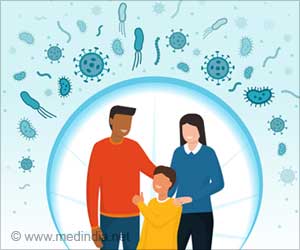Clinically related studies have shown that decreased anterior cingulate cortex (ACC) synaptic density and increased inflammation in the brain of depressed patients.
‘Early life trauma and viral infections are the risk factors that weaken brain cells to induce adolescent depression.’
Microglial cells are the resident immune cells of the brain that transform into a reactive state in response to stress challenges.
These activated microglia under pathological state take control of the inflammatory state of the brain tissue, which is closely related to the occurrence and development of depression.
In this study, researchers discovered that early-life inflammation can lead to exposure of microglial in the ACC to random stress events during adolescent development. This weakens the ability of ACC glutamatergic neuronal (ACCGlu) to fight stress, thus inducing adolescent depression.
They explored the responding and activating model of brain cells to stress occurring in mouse development from childhood to adolescence (45 days after birth) by administering lipopolysaccharide (LPS) 14 days after birth.
During later development period, a series of unpredictable life stress events (such as weaning, caging, noise and fighting) can lead to the re-activation of brain cells in LPS mice, making them more susceptible than normal mice.
The sharp increase of brain activity before stress can help mice to resist the attack of stress and protect themselves.
Source: Medindia



